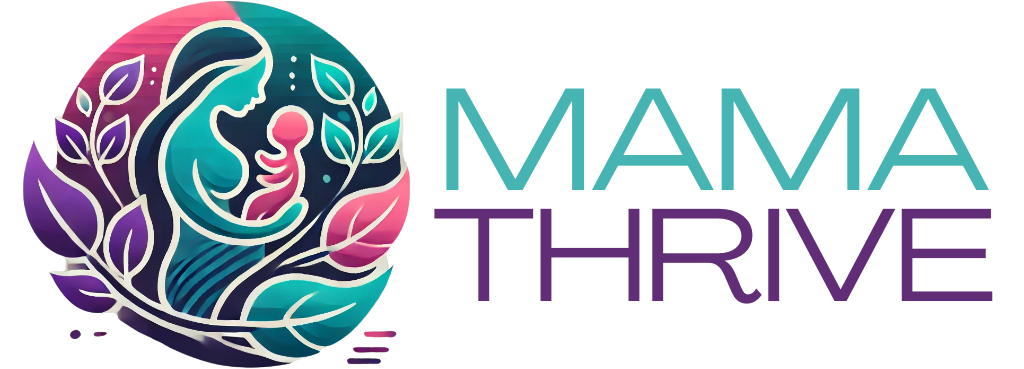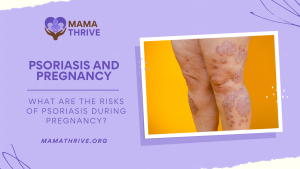International Prenatal Infection Prevention Month is observed in February to raise awareness about the importance of preventing infections during pregnancy. Prenatal infections can have serious consequences for both the mother and the developing fetus, including miscarriage, preterm labor, and birth defects. With ample prenatal care access and information, prenatal infections can be prevented.
Prenatal care is a type of medical care provided to a woman during pregnancy. It is designed to monitor the health of both the mother and the developing fetus’s health and prevent and treat any problems that may arise during pregnancy.
The goal of prenatal care is to ensure a healthy pregnancy and delivery and to identify any potential risks or complications early so they can be treated effectively. Prenatal care typically involves regular check-ups with a healthcare provider, who will perform tests and assessments to monitor the health of the mother and fetus. This may include blood tests, urine tests, ultrasound scans, and other procedures.
It is crucial for expectant mothers to reduce their risk of infection, including practicing good hygiene, getting vaccinated, avoiding exposure to harmful substances, and seeking prompt medical attention if they experience symptoms of infection. Healthcare providers also play an essential role in preventing prenatal infections by testing for and treating infections early and providing education and resources to help women reduce their risk.
Here are 8 prenatal care tips for a safe pregnancy
- Start prenatal care early
The earlier you start prenatal care, the better it is for you and your baby. You should aim to schedule your first appointment with your healthcare provider as soon as you know you’re pregnant.
Starting prenatal care early in your pregnancy is essential for many reasons. It allows your healthcare provider to monitor the health of both you and your developing fetus and identify any potential risks or complications early so they can be treated effectively. Early prenatal care can also help you make informed decisions about your pregnancy, such as choosing a childbirth method and help you prepare for the physical and emotional changes that come with pregnancy.
Also, starting prenatal care can help improve birth outcomes, such as reducing the risk of low birth weight, premature birth, and other complications. Early prenatal care can also help you form a relationship with your healthcare provider, which can be especially important during labor and delivery.
Overall, starting prenatal care as soon as possible is one of the best things you can do for yourself and your baby during pregnancy.
- Eat a healthy diet
Eating a balanced diet rich in nutrients is essential for a healthy pregnancy. You should aim to eat various foods from all food groups, including fruits, vegetables, whole grains, lean proteins, and low-fat dairy.
During pregnancy, your body requires additional nutrients to support the growth and development of your fetus. A balanced and nutritious diet can help ensure that both you and your baby get the nutrients you need.
A healthy pregnancy diet should include a variety of foods from all food groups, including fruits, vegetables, whole grains, lean proteins, and low-fat dairy. Some of the critical nutrients that are important for a healthy pregnancy include iron, folic acid, calcium, and omega-3 fatty acids.
It’s also essential to avoid certain foods that may be harmful during pregnancy, such as raw or undercooked meats, fish with high levels of mercury, and unpasteurized dairy products.
Learn more about healthy diet during pregnancy.
Overall, eating a balanced and nutritious diet during pregnancy is essential for promoting your and your baby’s health and well-being. Your healthcare provider can provide specific dietary recommendations based on your needs and pregnancy progression.
- Stay active
Physical activity can help you feel better, maintain a healthy weight, and reduce your risk of complications during pregnancy. Talk to your healthcare provider about what exercise is safe for you during pregnancy.
Physical activity during pregnancy can benefit both you and your baby. Regular exercise can help you feel better and maintain a healthy weight, reducing your risk of certain pregnancy complications, such as gestational diabetes and preeclampsia.
Physical activity can also help improve your mood, increase your energy levels, and reduce stress and anxiety. Exercise during pregnancy can also prepare your body for the physical demands of labor and delivery and help you recover more quickly after giving birth.
It’s important to talk to your healthcare provider about what exercise is safe for you during pregnancy. Some women can continue their regular exercise routine with modifications, while others may need to make significant changes.
- Avoid harmful substances
Certain substances, such as tobacco, alcohol, and medications, can harm your developing fetus. You should avoid these substances during pregnancy.
Tobacco use during pregnancy can increase the risk of premature birth, low birth weight, and other serious health problems for the fetus. Alcohol consumption during pregnancy can cause fetal alcohol syndrome, leading to physical and intellectual disabilities in the affected child.
In addition to tobacco and alcohol, certain medications can also harm the developing fetus. This includes over-the-counter and prescription medications, as well as illegal drugs. It’s important to talk to your healthcare provider about any medications you are taking, including vitamins and supplements, to determine if they are safe to use during pregnancy.
Overall, it is important to avoid using harmful substances during pregnancy to help protect the health of both you and your baby. If you are struggling with substance use, talk to your healthcare provider, who can help you find resources and support to help you quit.
- Get plenty of rest
Pregnancy can be physically and emotionally draining, so getting enough rest is important. Aim to get 7-9 hours of sleep each night and take naps during the day if you need to. During pregnancy, your body works hard to support the growth and development of your fetus, and getting adequate rest can help you feel refreshed and energized.
Sleep is especially important during the first and third trimesters when your body is undergoing significant changes. A lack of sleep can lead to fatigue, stress, and irritability and can also affect your ability to focus and make decisions.
In addition to getting enough sleep, it’s essential to practice good sleep hygiene, such as maintaining a regular sleep schedule, creating a relaxing sleep environment, and avoiding caffeine and electronics before bedtime.
If you are having trouble sleeping, talk to your healthcare provider, who can offer suggestions and support. Overall, getting enough rest is integral to a healthy pregnancy and can help you feel better physically and emotionally during this exciting and transformative time.
- Stay hydrated
Drinking enough water is important for a healthy pregnancy. During pregnancy, your body requires additional fluid to support your fetus’s growth and development, help regulate your body temperature, and maintain healthy blood flow. Aim to drink at least eight glasses of water a day, and more if you’re active or it’s hot outside.
It’s recommended that pregnant women drink at least 8-12 cups of water per day to stay properly hydrated. It’s also important to avoid drinks that can dehydrate you, such as caffeine and alcohol, and to choose water or other hydrating beverages, such as herbal tea or fruit-infused water.
Staying hydrated can also help relieve some common discomforts of pregnancy, such as constipation, fatigue, and headaches.
If you are having trouble getting enough water, try carrying a water bottle with you, drinking a glass of water before meals, and eating foods high in water, such as fruits and vegetables.
- Attend all prenatal appointments
Regular prenatal appointments are important for monitoring your and your baby’s health. Be sure to attend your appointments and follow your healthcare provider’s recommendations. Hitting a “prenatal care near me” on your phone will usually suggest a healthcare provider good fit for booking.
Here’s a thorough breakdown of what prenatal care is.
Regular prenatal appointments are a crucial part of a healthy pregnancy. During these appointments, your healthcare provider will monitor your health and the health of your fetus and will be able to identify and address any potential problems early on.
At your prenatal appointments, your healthcare provider will measure your weight, blood pressure, and uterus and check your fetus’s growth and position. They may also perform routine blood tests, such as a complete blood count, or perform a pelvic exam to assess your cervix.
- Ask questions
If you have any questions or concerns about your pregnancy, don’t hesitate to ask your healthcare provider. They are there to help you have a safe and healthy pregnancy.
Some common questions and concerns that you may want to ask your healthcare provider include the following:
- How to manage physical discomforts during pregnancy
- What foods to eat and avoid during pregnancy
- How much weight should you gain during pregnancy
- What kind of physical activity is safe during pregnancy
- How to reduce the risk of complications during pregnancy
Your healthcare provider will be able to provide you with the information and guidance you need to make informed decisions about your pregnancy and to ensure that both you and your baby are healthy and well taken care of.
Conclusion
Observing International Prenatal Infection Prevention Month is an opportunity for individuals, organizations, and communities to come together and emphasize the critical importance of protecting the health of mothers and their babies. Raising awareness and promoting preventive measures can help ensure healthy pregnancies and futures for mothers and their children.
Prenatal care is vital for the health and well-being of both the mother and the developing fetus, and it’s essential to take steps to prevent infections during pregnancy, as conditions can have severe consequences for both the mother and the baby. Mama Thrive is committed to giving access to prenatal care wherever and whenever you are. Join our program and be a part of revolutionizing healthcare.





